-
Introduction
- A brief overview of squatter’s rights and why understanding the eviction process is essential for Colorado property owners.
- Mention of recent legislative updates for 2024.
-
Understanding Squatter’s Rights in Colorado
- Definition of squatter’s rights.
- Explanation of adverse possession and its requirements in Colorado.
- Recent legal updates and their implications for property owners and squatters.
-
Legal Framework: What Property Owners Need to Know
- Rights of property owners under Colorado law.
- Common scenarios involving squatters and legal considerations.
-
Step-by-Step Guide to Evicting Squatters
- Detailed steps for identifying and removing squatters.
- “Putting Squatters on Notice,” “Filing a Complaint,” and “Awaiting Court Judgment.”
- Common challenges and how to overcome them.
-
FAQs on Squatter’s Rights and Eviction
- Common questions property owners have about squatters, rights, and eviction processes.
-
Resources for Property Owners
- Links to legal forms, contact information for local authorities, and services for eviction support.
-
Conclusion
- Encouragement for property owners to act within the law and seek professional help if needed.
- HBR Colorado’s Squatter Eviction Services.
Table Of Contents
- Evicting Trespassers In 72 Hours – New Law For 2024
- Downloadable PDF Forms Needed To Evict Squatters Fast
- Squatting Laws In Colorado
- What Is An Adverse Possession Claim In Colorado?
- What Is The Difference Between Squatting And Trespassing?
- What Rights Do Squatters Have In Colorado?
- How To Legally Evict A Squatter In Colorado
- Can I Sell My House With Squatters Still Inside?
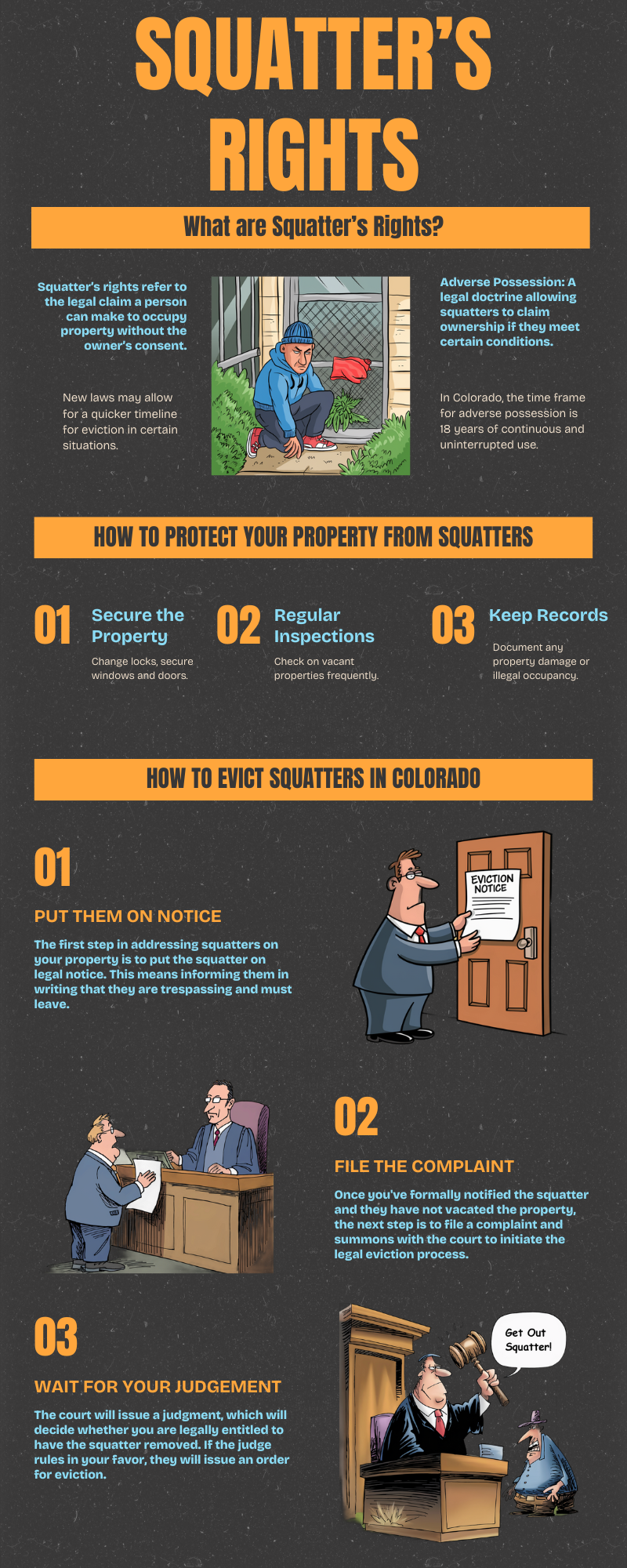
Introduction to Squatter’s Rights Laws in Colorado
The legal framework surrounding squatter’s rights is dynamic.
As of 2024, Colorado has seen some notable legislative updates.
These updates impact both property owners and squatters.
Understanding these changes is crucial for individuals involved in real estate transactions.
It is also essential for those involved in property management.
Let’s explore the recent modifications to squatter’s rights laws in Colorado and consider their implications.
Squatter’s Rights in Colorado:
- Adverse possession: In Colorado, squatters can potentially claim ownership of a property through adverse possession if they occupy it openly, continuously, and exclusively for at least 18 years under a claim of right.
- Trespassing vs. adverse possession: Colorado law differentiates between criminal trespassing (occupying vacant structures without consent) and potential adverse possession claims (long-term open use of land without the owner’s objection).
- Evidence requirements: Courts require clear evidence of exclusive control, actual use, and potential payment of property taxes to establish adverse possession claims.
Why Understanding the Eviction Process is Essential:
- Legal protection: Property owners must follow proper legal procedures to remove unauthorized occupants. Self-help evictions are prohibited in Colorado.
- Preventing adverse possession: By understanding and utilizing the eviction process, property owners can take timely action to prevent squatters from potentially establishing adverse possession claims.
- Avoiding legal complications: Failure to follow the correct eviction procedures can lead to dismissed cases, allowing squatters to remain on the property longer.
- Protecting property rights: The eviction process is the legal mechanism for property owners to assert and defend their ownership rights against unauthorized occupants.
- Time and cost savings: Properly executing the eviction process from the start can save property owners time and money compared to dealing with prolonged squatter situations or restarting flawed eviction attempts.
- Navigating complex laws: Colorado’s eviction laws and procedures can be complex. Understanding the process helps property owners navigate these legal requirements effectively.
By understanding both squatter’s rights and the eviction process, Colorado property owners can better protect their interests and take appropriate action when dealing with unauthorized occupants.
Definition of Squatter’s Rights
Squatter’s rights, also known as adverse possession, refer to the legal rights that a person may gain over a property they do not own by occupying it for a certain time without the owner’s permission.
Key points about squatter’s rights include:
- They allow a squatter to potentially claim legal ownership of a property after occupying it continuously for a specified time, which varies by state (e.g. 18 years in Colorado).
- The occupant must meet certain criteria, typically including:
- Actual possession (physically occupying the property)
- Hostile possession (without the owner’s consent)
- Open and notorious use (visible to others)
- Continuous occupation for the required time (18 years in Colorado)
- Exclusive use (not shared with the true owner)
- In some states, squatters may need to have “color of title” (some document that appears to give them ownership) or pay property taxes to strengthen their claim.
- The purpose is to encourage productive use of land and discourage property abandonment.
- Squatter’s rights laws require property owners to be vigilant and take timely legal action to remove unauthorized occupants.
- Simply trespassing is not enough – squatters must treat the property as if they were the rightful owners, often maintaining or improving it.
In essence, squatter’s rights provide a legal pathway for someone occupying property without permission to potentially gain ownership if the true owner fails to assert their rights within a specified timeframe.
Explanation of Adverse Possession and Its Requirements in Colorado
Adverse possession is a legal doctrine that allows someone to claim ownership of property they don’t legally own by occupying it for a certain time. In Colorado, the key requirements for adverse possession are:
- Time: The squatter must occupy the property continuously for at least 18 years. However, this can be reduced to 7 years if the squatter has “color of title” (some document that appears to give them ownership) and has paid property taxes.
- Nature of possession: The occupation must be:
- Actual (physically occupying the property)
- Hostile (without the owner’s permission)
- Open and notorious (visible to others)
- Exclusive (not shared with the true owner)
- Continuous for the required time
- The burden of proof: As of July 1, 2008, the claimant must prove these elements by “clear and convincing evidence” (a higher standard than previously required).
- Good faith belief: The 2008 law also requires that the adverse possessor had a good faith belief that the land was theirs.
- Compensation: The court may order the successful adverse possessor to pay the original owner for the value of the property and reimburse property taxes.
- Limitations: Adverse possession cannot be claimed against government-owned land.
- Partial claims: It’s possible to claim adverse possession on only part of a property, but the same requirements apply to that specific portion.
- Abandonment: Rights gained through adverse possession can be lost if the possessor abandons the property.
These rules aim to balance protecting legitimate property rights while allowing for the resolution of long-standing boundary issues or cases of neglected properties. The 2008 changes made it somewhat more difficult to claim adverse possession in Colorado.
Squatter’s Rights in 2024: Colorado Legislative Updates
1. Clarifications on Adverse Possession Criteria
Colorado lawmakers have introduced clarifications to the criteria for adverse possession.
Adverse possession is a key component of squatter’s rights.
Adverse possession allows individuals to claim property ownership by openly occupying and using it without the owner’s permission for a specified period.
Recent changes aim to provide more clarity on the conditions under which adverse possession can be established.
2. Stricter Requirements for Squatter’s Rights Establishment
Squatters now need to demonstrate a more significant level of continuous and exclusive possession to qualify for legal recognition.
This adjustment aims to strike a balance between protecting property rights and addressing genuine cases of need.
3. Streamlined Eviction Processes
Colorado has implemented changes to streamline eviction processes.
The new measures expedite legal proceedings, allowing property owners to regain possession more efficiently.
This is particularly beneficial for property owners dealing with situations where squatters refuse to vacate.
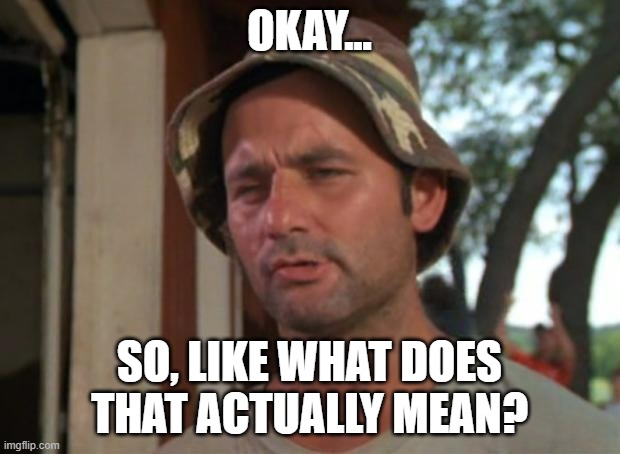
Implications for Property Owners
1. Increased Protection of Property Rights
The recent legislative changes provide property owners with increased protection of their rights and assets.
Stricter criteria for adverse possession make it more challenging for individuals to acquire ownership through squatting.
This gives property owners greater security against unwarranted claims.
2. Expedited Eviction Processes
Property owners facing the challenge of removing squatters from their premises will benefit from the streamlined eviction processes.
More efficient legal proceedings help minimize the impact on property values, reduce potential property damage, and save owners from prolonged legal battles.
3. Enhanced Legal Recourse
The enhanced legal framework offers property owners improved legal recourse in cases of squatter occupation.
The clarity provided by the legislative updates strengthens the foundation for property owners to protect their rights and take swift action against unlawful occupants.
Considerations for Squatters
1. Heightened Criteria for Squatter’s Rights
Squatters should be aware of the heightened criteria for establishing squatter’s rights.
The increased emphasis on continuous and exclusive possession underscores the need for squatters to meet more stringent requirements for legal recognition.
2. Risk of Expedited Eviction
With streamlined eviction processes, squatters face a higher risk of expedited removal from properties.
It becomes imperative for those considering squatting to be aware of the legal consequences and potential swiftness of eviction actions.
3. Legal Awareness and Compliance
In light of the recent legislative changes, squatters must be aware of the evolving legal landscape and ensure compliance with property laws.
Ignorance of the updated requirements may lead to legal repercussions and challenges in establishing squatter’s rights.
Summary Of Recent Changes To Squatting Rights in Colorado
The recent changes in Squatter’s Rights In Colorado reflect an ongoing effort to balance the interests of property owners and individuals seeking legal recognition through adverse possession.
Property owners now benefit from increased protection, streamlined eviction processes, and enhanced legal recourse.
Squatters, on the other hand, face a more challenging landscape with stricter criteria and expedited eviction proceedings.
Both property owners and squatters must stay informed about the evolving legal framework and seek professional advice when navigating issues related to squatter’s rights.
The changes implemented in 2024 aim to foster a more equitable and efficient resolution of disputes concerning property occupancy, contributing to a more transparent and secure real estate environment in Colorado.
Step-by-Step Guide to Evicting Squatters in Colorado
How To Evict Tresspassing Squatters Without A Lease in 72 Hours (New Law for 2024)
I have some great news!
You can now evict a squatter who is trespassing in Colorado in 2024 in 72 hours flat!
Just follow the simple instructions below, fill out the forms, and take them to your local courthouse to get your day in court and evict your squatters promptly!
How To Evict A Squatter In 72 Hours If They Are Trespassing
- Follow Form JDF 153 – Instructions For Removal Of Unauthorized Person(s)
- Fill Out Your Proper PDF Forms Listed In The Instructions For Removal Of Unauthorized Persons Document
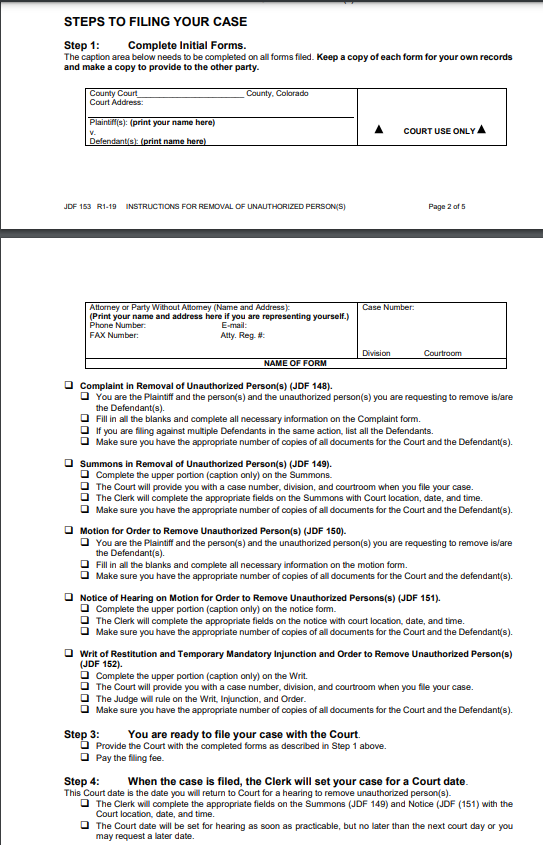
Step 3 – Fill Out Forms JDF 148 – 152 And An Affidavit Of Service
- Form JDF 148 – Complaint In Removal Of Unauthorized Person(s)
- Form JDF 149 – Summons in Removal of Unauthorized Person(s)
- Form JDF 150 – Motion for Order to Remove Unauthorized Person(s)
- Form JDF 151 – Notice of Hearing on Motion for Order to Remove Unauthorized Persons(s)
- Form JDF 152 – Writ of Restitution and Temporary Mandatory Injunction and Order
- And finally, last but certainly not least the Affidavit Of Service
And for those of you who just read through all of that and said to yourself “I’m not doing all of that, isn’t there a faster, easier option” the answer is a resounding yes!
You can choose to sell the house as-is with the squatter inside to a professional cash home buyer like us here at HBR Colorado.
Fill out the form below to get started!
Sell Your House Now - Please Submit Your Property Info Below
... to receive a fair all cash offer and to download our free guide.
How to Evict Holdover Squatters With a Prior Lease
Step 1: Give Notice (landlord)
a) Use the Notice that fits your situation:
JDF 99 A – Demand for Compliance
- Unpaid rent.
- Lease violations.
- Disturbing conduct.
JDF 99 B – Notice to Terminate Tenancy
- Repeat lease violations.
- Criminal behavior.
JDF 99 C – Notice of No-Fault Eviction
- Not renewing a lease.
b) The Notice has important information on how to properly give it to the Tenant (service).
JDF 98 – Affidavit of Service (Just do §§ 1-4)
c) Wait the time stated in the Notice before Step 2.
Mandatory Mediation
If your prior tenants turned squatters are on government assistance such as SSI or SSD then you are required to go through mandatory mediation before proceeding with the eviction complaint and summons.
Check the Notice to see if you need mediation before filing a case (Step 2). If so, schedule at: [www.ColoradoODR.org]
Step 2: Start an Eviction Case (landlord)
If the squatters don’t leave after 3 days, file an eviction lawsuit using a Complaint and Summons, also known as a ‘Forcible Entry and Detainer’ suit, with your local county court.
Complete these forms. The Court Clerk will schedule a Return Date when you file:
JDF 102 – Summons (signed by Clerk)
Print a blank copy for each tenant:
JDF 108 – Request for Documents
Step 3: Personal Service (landlord)
Provide copies of all four Step 2 forms to the local Sheriff or a process server, along with:
JDF98 – Affidavit of Service (Just do §§ 1-4)
The process server completes the service, finishes the form, and returns it to you. Then file with the court.
Service must be completed at least seven days before the return date.
Step 4: Answer (tenant)
File your response on or before the Return Date or bring it with you to the Courthouse.
Step 5: Return Date & Trial (both parties)
The parties may meet and try to resolve the matter at the Return Date. If no agreement, the Court will schedule the case for trial.
If parties agree to terms, file:
JDF 106 A – Stipulated Agreement
JDF 106 B – Order (Just do §§ A-C)
If there is no agreement, file:
JDF 108 – Request for Documents
Step 6: Enforcement (landlord)
If evicted, the Court will issue a Writ.
JDF 109 – Writ of Restitution (signed by Judge)
a) Wait the time on the writ.
b) Take it to the Sheriff to enforce the eviction.
More Information
Find Forms
Forms can be found on the Court’s website:
How to File
Start the case:
- File at the courthouse in the county where the rental home is located.
After the case is started:
- File in-person, or online at:
[www.jbits.courts.state.co.us/efiling]
Filing Fees
Landlord: $85-$235 (varies by requested damages)
Tenant: $0
If you can’t afford the fees, also file:
JDF 205 – Motion to Waive Fees
JDF 206 – Order re Court Fees (Just do §§ A-C)
Attending Court
You can attend court events in person or remotely (via internet video conference).
Mark your preference in the Complaint
(JDF 101) or Answer (JDF 103). Or file:
JDF 105 – Notice About Remote Participation
If chosen, the court will send you information on how to participate remotely.
Additional Step 3 Service (for landlords)
Review the Summons (JDF 102 § 13) for an additional service method.
In short:
a) Mail the Step 2 documents to the Tenants before filing with the Court.
b) Note this on Summons (§ 13) when you file.
c) Still submit JDF 98 (signed by a process server or Sheriff) showing the documents were also posted at the home.
Then, if you can’t get personal service completed:
a) The Court can still order an eviction.
b) But it can’t award you a money judgment.
Default
Someone defaults in the case when:
a) The Tenant doesn’t file an Answer (JDF 103);
b) The Landlord doesn’t file a Reply (JDF 74) if the Tenant makes Counterclaims;
c) Or, a Party doesn’t attend the Hearing.
Then file:
JDF 107 A – Motion for Entry of Judgment
JDF 107 B – Judgment Order (Just do §§ A-C)
My Notes
- §§ means “sections”
Understanding the Impact of Colorado Revised Statute §13-40.1-101 on Removing Squatters
In Colorado, handling squatters can be a complex process due to their legal rights. However, the Colorado Revised Statute §13-40.1-101 streamlines this process if specific conditions are satisfied.
Streamlining Squatter Removal
- Legal Framework: This statute offers a faster legal pathway for property owners to remove squatters compared to standard eviction procedures.
- Required Conditions: For the statute to apply, certain criteria need to be met, such as the squatter having no rightful claim to the property, and the rightful owner taking timely action.
Key Provisions
-
Notice Requirements: The statute provides clear guidelines on how notice must be given to squatters, reducing ambiguity and speeding up the process.
-
Court Involvement: It allows for expedited court proceedings, meaning cases can be resolved more quickly if brought to legal attention promptly.
-
Enforcement: With legal backing, property owners can involve law enforcement to assist in removing squatters once the necessary legal steps are completed.
Breaking down these barriers, the Colorado Revised Statute §13-40.1-101 empowers property owners by offering a more efficient legal route, ensuring quicker resolution times while adhering to legal protocols.
Rights and Responsibilities of Landlords Regarding Squatters in Colorado
In Colorado, landlords navigating the challenges of squatters must understand their legal rights and responsibilities to address the issue effectively. Here’s what landlords need to know:
Landlord Rights
-
Request Removal: Landlords have the right to ask squatters to vacate the premises. This is the first step in addressing squatting issues.
-
Legal Action: If the squatter refuses to leave, landlords can escalate the situation legally. This involves filing a Verified Motion for an Order to Remove Unauthorized Persons with the court.
-
Gathering Proof: Landlords can document evidence supporting their claims that the squatter has no legal claim to the property. This includes taking photos and collecting other evidence demonstrating the lack of continuous possession or payment of property taxes.
Landlord Responsibilities
-
Following Legal Procedures: Landlords must adhere to legal processes for removing squatters. Self-eviction or forceful removal is illegal and can result in severe consequences.
-
Distinguishing Squatters from Tenants: It is crucial to differentiate between a squatter and a tenant. A squatter typically has no prior tenant relationship or agreement with the property owner, unlike tenants with rental agreements.
By understanding these rights and responsibilities, landlords can ensure they manage squatting situations effectively and lawfully.
To effectively counter squatter claims of adverse possession, property owners can take several proactive measures to document evidence:
1. Photographic Documentation
Property owners should regularly photograph their property, focusing on areas that might show signs of occupancy. These images can serve as a timeline to demonstrate that no squatters have continuously lived there, which is crucial when disproving claims of uninterrupted possession.
2. Maintain Property Records
Keep detailed records of visits, maintenance activities, and any interactions with individuals found on the premises. This documentation helps establish the owner’s active engagement with the property, countering any arguments of abandonment.
3. Utilize Surveillance Systems
Installing security cameras can provide video evidence of the property’s condition and any intrusions. Camera footage is invaluable in showing that squatters have not established a permanent or exclusive residence.
4. Sworn Affidavits
Gathering statements from neighbors or third parties who can attest to the property’s occupancy status bolsters your evidence. Affidavits can confirm that they have not observed squatters living there continuously.
5. Tax and Utility Payment Records
Providing proof of up-to-date property tax payments can be instrumental, especially in jurisdictions where squatters might have grounds to claim rights if they’ve been shouldering tax burdens. Also, retaining records of utility payments helps emphasize the owner’s control and residence status.
By diligently compiling these forms of evidence, property owners are better equipped to refute squatter claims and safeguard their property rights.
Tenant Rights and Responsibilities in Colorado: Handling Squatters and Trespassers
When faced with squatters or trespassers, tenants in Colorado have specific rights and responsibilities to ensure their safety and legal compliance.
Rights of Tenants
- Legal Occupancy: Tenants have the right to occupy the property as per the terms outlined in a valid lease agreement.
- Safety and Security: Tenants are entitled to live in a safe environment, free from unauthorized individuals.
Responsibilities of Tenants
- Reporting Unauthorized Individuals: If tenants encounter trespassers or suspects squatters on the premises, they must promptly inform their landlord or property manager. This allows the appropriate legal measures to be taken.
- Involving Authorities: In situations where there are immediate security concerns, tenants should contact local law enforcement rather than attempting any confrontations themselves.
- Avoiding Direct Action: It is crucial for tenants not to take matters into their own hands by trying to remove squatters. This could lead to legal repercussions or personal harm.
By understanding these rights and responsibilities, tenants can better navigate the complexities of dealing with unauthorized occupants while ensuring both their safety and their compliance with Colorado laws.
Squatter’s Rights Vs. Property Owner’s Rights: The Age Old Debate
Squatting in Colorado is a hot topic that has been debated for a long time.
Squatting has been around since the early 19th century and has been a frequent struggle between those who own property and those who don‘t.
Colorado has an interesting legal system when it comes to squatting, and this article will explore that system and explain the Colorado squatter’s rights.
What is Squatting?
Squatting is when someone lives on or occupies another person’s property without the owner’s permission.
This usually happens when someone moves onto a property and begins to “set up camp” without the owner’s knowledge.
Squatting is often seen as a form of protest against property owners, but it can also be done out of financial necessity.
When someone is squatting, they may not have any legal rights to the property, but they may be able to establish “squatter’s rights” through long–term occupancy.
Squatter’s Rights in Colorado
In Colorado, squatter’s rights are often referred to as adverse possession.
Adverse possession is a legal principle that allows a non–owner of real estate to gain legal title to the property after occupying it for a certain time.

Who is a Squatter and Who Can Claim Squatter’s Rights In Colorado?
A squatter is an individual who occupies a property without lawful permission from the owner. Typically, these properties are abandoned, foreclosed, or otherwise unoccupied, creating opportunities for unauthorized occupancy. While it is uncommon, squatters sometimes target commercial buildings as well.
In Colorado, squatters can potentially claim legal rights to a property through adverse possession. However, several specific requirements must be met:
- The squatter must have uninterrupted possession of the property for at least 18 years.
- They must be in “hostile” possession, meaning they occupy the property without the owner’s permission.
- Actual possession is required, indicating the squatter must live on the property rather than just visiting.
- Possession must be “open and notorious,” meaning visible to the public and not concealed.
- All taxes on the property must be paid by the squatter during the 18-year period.
- Possession must be exclusive and continuous, meaning the squatter is the sole occupant without sharing the property.
- Finally, possession must be in good faith, with the squatter believing they have a right to occupy the property.
By meeting all these criteria, a squatter may establish adverse possession in Colorado and potentially gain legal title to the property.

Adverse Possession Laws In Colorado
Adverse possession is a legal doctrine that allows a person to obtain title to land owned by another by continuously occupying it for a certain period.
Adverse possession laws in Colorado are governed by Colorado Revised Statutes Sections 38–41–101 to 38–41–203, and provide for an individual who satisfies certain requirements to obtain title to real estate.

The general rule of adverse possession in Colorado is that an individual must occupy, use, and/or possess land owned by another for eighteen years to acquire title from the current owner.
However, several other factors must be met for the individual to successfully claim title under an adverse possession claim.
Different Types of Adverse Possession Claims
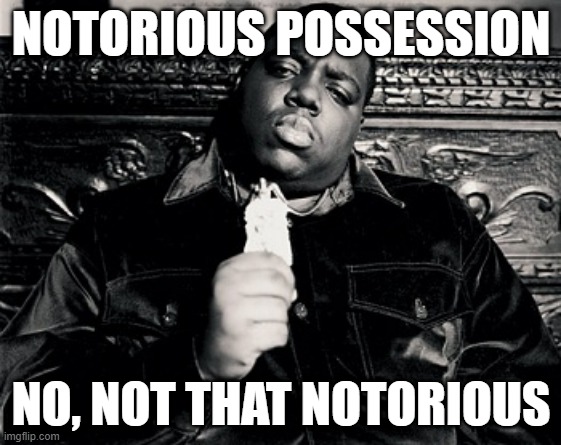
Open & Notorious Possession
Firstly, possession must be actual, open, notorious, hostile, exclusive, and continuous.
Actual possession means that the individual must occupy the land and make it his or her own.
The individual must occupy and use the land as if he or she were the actual owner.
Open and notorious possession means that the use of the land must be visible to the public.
The individual must use the land openly and without any attempt to conceal the use.
Hostile Possession
Hostile possession means that the individual must occupy the land without the consent of the current owner and without paying rent to the owner.
Exclusive Possession
Exclusive possession requires the individual to occupy the land as the sole user and occupier.
Continuous Possession
Lastly, continuous possession requires the individual to occupy the land for the entire seven–year period without any gaps in the possession.
In addition, the individual must also pay all applicable taxes on the land and make any necessary improvements to the land to successfully claim title under an adverse possession claim.
Adverse Possession Claim Priority
Additionally, the individual must be the first to file an adverse possession claim in the county where the land is located to establish priority over any other adverse possession claimants.
Once all of the above requirements are met and the individual has occupied the land for seven years, the individual may then file an adverse possession claim in the county court in the county where the land is located.
Adverse Possession Claim Requirements
The individual must provide proof of all the requirements for an adverse possession claim listed above to establish his or her claim to the land.
If the court finds that the individual has satisfied all of the requirements for an adverse possession claim, the court may then grant the individual title to the land.
The individual will then be the legal owner of the land and will be able to transfer the title to the land.
Adverse possession is a complex legal doctrine and individuals need to understand the requirements for an adverse possession claim in Colorado before attempting to claim title to land owned by another.
To ensure that an individual’s claim is successful, it is important to consult an experienced attorney to ensure that the individual meets all of the requirements for an adverse possession claim in Colorado.
Overview of the Statute Limitations Period
The statute limitations period begins when there has been actual, open, and notorious, exclusive, hostile use or control by an individual over another’s property.
This means that if someone uses another’s land with their permission or if both parties believe that they own a part of each other’s land but are mistaken about it – then this situation would not meet any of these requirements and thus would not qualify to establish adverse possession.
To successfully prove adverse possession through continuous use without interruption for eighteen years in Colorado one must be able to prove these four elements:
- (1) actual possession
- (2) open and notorious use
- (3) exclusive use
- (4) hostile use.
If all four elements are satisfied during this time frame then it is considered “openly hostile.”
The Color of Title Doctrine in Colorado
The color of title doctrine is a legal principle in the United States that establishes a claim to land if a title claimant has possessed, used, and controlled the land in a manner that is consistent with legal ownership.
This principle was created to protect owners and users of land, providing a way to establish a valid title and claim to the land, even if a title has not been properly conveyed or established.
In Colorado, the color of title doctrine is governed by the Colorado statutes and case law.
This article will outline the color of title doctrine in Colorado, discuss the requirements and exceptions of the doctrine, and provide examples of cases that have been decided in Colorado courts.
What is the Color of Title Doctrine?
The color of title doctrine is an equitable remedy developed to protect land owners, tenants, and other users of land from adverse possession claims and loss of property rights.
The doctrine creates an exception to the statutory requirement for establishing a valid title. Under the doctrine, a person has a valid title even if the underlying title has not been properly conveyed or established.
In essence, the doctrine allows a person to prove ownership of land based on the fact that they have possessed, used, and controlled the land in a manner consistent with legal ownership.
The doctrine originated in England, where it was known as “ostensible title”. In the United States, the doctrine is known as the “color of title” and is recognized in most states.
Color of title provides a remedy to a person who is claiming a legitimate title to the land, even though the underlying title was defective or incomplete.

Requirements of the Color of Title Doctrine in Colorado
In Colorado, the color of title is a matter of both statute and case law. The Colorado statutes outline the specific requirements for a claim of color of title.
To establish a valid color of title claim in Colorado, a claimant must prove the following elements:
- The claimant must have held possession of the land for seven (7) years or more;
- The claimant must have paid taxes on the land for seven (7) years or more;
- The claimant must have made improvements to the land;
- The claimant’s possession must have been open, notorious, and hostile;
- The claimant must have held the land under a color of title; and
- The claimant must have been acting in good faith. Exceptions to the Color of Title Doctrine in Colorado
There are several exceptions to the color of title doctrine in Colorado. The most common exceptions are:
- If the land was acquired by fraud;
- If the land was acquired through an illegal or immaterial title;
- If the claimant was not acting in good faith; or
- If the claimant is not the first party in possession.

Examples of Color of Title Cases in Colorado
In the Colorado case of Jones v. Miller, the court held that the plaintiff established a valid color of title claim. The plaintiff had had the land for more than seven years and had paid taxes on the land for more than seven years.
Additionally, the plaintiff had made improvements to the land and had acted in good faith. The court found that the plaintiff’s claim was valid under the color of title doctrine and awarded the plaintiff the title to the land.
In the Colorado case of White v. Smith, the court held that the plaintiff did not establish a valid color of title claim.
The court found that the plaintiff’s alleged possession of the land was not “open, notorious, and hostile” and that the plaintiff was not acting in good faith.
The court also found that the plaintiff was not the first party in possession of the land. As a result, the court found that the plaintiff did not meet the requirements of the color of title doctrine and denied the plaintiff’s claim.
The color of title doctrine is an equitable remedy that provides a way to establish a valid title to land, even if the underlying title has not been properly conveyed or established.
In Colorado, the color of title doctrine is governed by the Colorado statutes and case law.
To establish a valid color of title claim in Colorado, a claimant must prove the following elements: possession of the land for seven (7) years or more; paying taxes on the land for seven (7) years or more; making improvements to the land; possession being open, notorious and hostile; holding the land under color of title, and acting in good faith.
There are several exceptions to the color of title doctrine in Colorado, including fraud, illegal or immaterial titles, lack of good faith, and not being the first party in possession.
Colorado courts have addressed the color of title claims in several cases, with varying results. Ultimately, the color of title doctrine is an important legal principle that serves to protect owners and users of the land.

How To Protect Your Property From Squatters In Colorado
If you own property in Colorado, it is important to be aware of the potential for squatting and take steps to protect yourself.
To avoid squatters, it is important to secure your property by posting “No Trespassing” signs and making it clear that the property is off-limits. Additionally, it is important to visit your property regularly and check for any signs of squatting. If you do find evidence of squatting, it is important to take action quickly to prevent the squatter from gaining adverse possession.
Practical Steps to Secure Your Property:
-
Regular Inspections: Have someone keep an eye on your property if you intend to go away for an extended period of time. This could be a trusted neighbor or a professional service.
-
Security Measures: Secure all entrances by ensuring locks are robust and functional. Consider installing CCTV cameras throughout the property for added surveillance.
Squatting is a common problem in Colorado, and property owners need to understand the laws surrounding squatter’s rights. For a squatter to gain legal title to a property through adverse possession, they must meet all of the requirements outlined above.
It is also important for property owners to take steps to secure their property and prevent squatting. By understanding these laws and taking the proper steps to protect your property, you can prevent squatting and protect your rights as a property owner in Colorado.
Additional Recommendations:
-
Regular Visits: Make it a habit to visit your property regularly. This not only deters squatters but also allows you to promptly address any security issues.
-
Quick Action: If you discover signs of squatting, act quickly. Prompt action can prevent a squatter from gaining any legal foothold.
By integrating these practical measures with an understanding of local laws, you can effectively safeguard your Denver or Colorado Springs property from squatters.
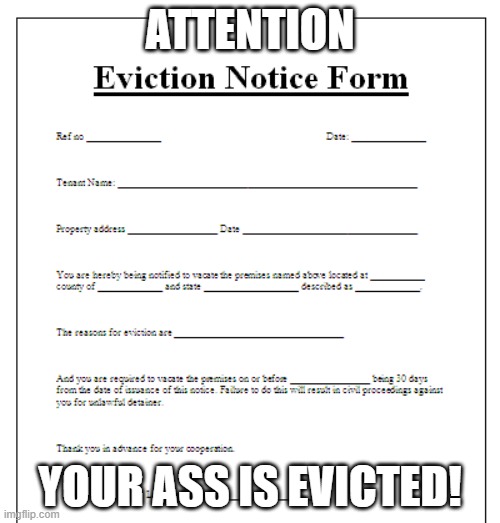
How Fast Can You Evict A Squatter In Colorado?
True squatters/trespassers can be removed within 72 hours, compared with people who have to go through an eviction, which can take up to a month or more to complete.
Squatters in Colorado are an unfortunate part of life. Squatters are people who occupy a building or land without the owner’s permission or legal title.
The Colorado statutes allow for owners to evict a squatter, but the process is lengthy and requires legal action.
The first step in evicting a squatter in Colorado is to serve a notice to vacate. The notice must be in writing and signed by the owner of the property.
The notice must include the address of the property, the name of the squatter, and a date by which the squatter must vacate the property.
The date must be at least seven days after the date the notice was served. The notice must also be delivered in person or in a manner that is likely to give actual notice, such as by mail or posting it on the property.
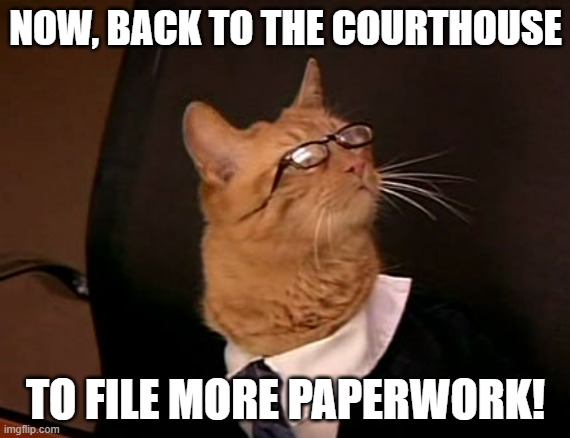
Filing The Complaint To Evict The Squatter
Once the notice to vacate has been served, the squatter must then vacate the property.
If the squatter does not vacate by the date specified, the owner must then file a complaint in the local district court, asking the court to order the squatter to vacate the property.
The complaint must include the address of the property, the name of the squatter, and a statement that the owner has served the squatter with a notice to vacate.
Once the complaint has been filed, the court will issue an order for the squatter to appear before the court and answer the complaint.
The court will then conduct a hearing and decide whether the squatter will be ordered to vacate the property. If the court finds in favor of the owner, the court will issue an eviction order, which must be served on the squatter.
The eviction order must include the date by which the squatter must vacate the property, which must be at least five days after the date the order is served. Once the eviction order has been served, the squatter must vacate the property.
Last Ditch Efforts To Forcefully Evict Squatters
If the squatter does not vacate, the owner must then file a motion for an eviction hearing, which is a hearing held in front of a judge.
At the hearing, the owner will present evidence that the squatter has not vacated the property. The judge will then decide on whether to issue an eviction order.
If the judge orders the squatter to vacate, the order must be served on the squatter. The squatter must then vacate the property by the date specified in the eviction order.
If the squatter still does not vacate the property, the owner must then file a motion for a writ of possession. The writ of possession is an order from the court granting the owner the right to evict the squatter.
Evicting Squatters After Serving A Writ Of Possession
The writ of possession must be served on the squatter before the eviction can take place. Once the writ of possession has been served, the sheriff will then schedule an eviction date.
The eviction is usually done within a few days of the writ of possession being served. The sheriff will then remove the squatter and the owner can then retake possession of the property.
Evicting a squatter in Colorado can be a lengthy and complicated process.
It is important to note that the process can vary from jurisdiction to jurisdiction, so it is important to speak with a qualified attorney for advice and information about the specific process in your area.
Additionally, squatters have certain legal rights and can contest the eviction at any time during the process, so it is important to understand all of the legal issues before attempting to evict a squatter.

Is Squatting Legal?
In the United States, squatting is illegal. The law states that an individual does not have the right to occupy someone else’s property without their permission.
In general, squatting is a civil offense and is punishable by eviction and/or fines. In cases where a property has been abandoned for a certain period, the owner may have forfeited their rights to the property, making it possible for squatters to take possession. However, it’s important to note how squatting and trespassing differ in terms of legal consequences.
Trespassing typically carries more severe penalties, including potential jail time and fines. These penalties underscore the seriousness of unlawfully entering someone else’s property. Unlike squatting, trespassing does not usually lead to eviction, as it is primarily viewed as a criminal offense.
Squatting, on the other hand, rarely results in jail time. The most common repercussion is forceful removal by authorities if the squatters refuse to vacate. This reflects a more lenient approach, as squatting is often treated as a civil matter unless other crimes are involved.
Understanding these distinctions is crucial for property owners and potential squatters alike, as the legal system treats these offenses differently based on their nature and circumstances.
In these cases, squatters may be able to assert their right of ownership through “adverse possession.”
Is It Legal to Squat in a Home?
Adverse possession is a legal concept in which a person who occupies land or a building without permission can gain title to it after a certain period.
The time required varies by state and is usually between five and 30 years. Is It Legal to Squat in a Home?
In most cases, squatting in a home is illegal. The law states that an individual who enters someone else’s property without their permission is trespassing and can be held liable for damages.

Is Squatting A Felony?
Squatting can also be considered burglary, which is a felony in most states. Even if a property has been abandoned for a certain time, the owner may still have rights to the property.
Therefore, squatting in a home is not generally considered legal. However, some states do recognize the right of adverse possession.
In these cases, squatters may be able to take possession of a home after a certain time.
If a squatter has maintained possession of a home for a time that meets the requirement of their state’s adverse possession laws, they may be able to take legal possession of the home.
How Long Can Squatters Stay In Colorado?
To make an adverse possession claim, squatters must remain continuously on a property for 18 years.
However, if they’re paying property taxes and possess a color of title, squatters can claim after just 7 years.
Sell Your House Now - Please Submit Your Property Info Below
... to receive a fair all cash offer and to download our free guide.
What Are Colorado Squatters Rights In 2024?
This article will help define what rights squatters have in the state of Colorado. If you are looking to learn about squatting rights in Colorado then this article will help you learn exactly what rights squatters have and how you can evict squatters from your property if they are staying there without permission.
Colorado Squatting Laws are very complicated, but the main thing that you need to know is that if a squatter has trespassed on your property by breaking and entering and does not have a lease, you can evict them but must give them 90 days to clear the premises; unless you follow the quick-eviction guide at the top of the page which allows you to evict them quickly within 72 hours.
Can Someone Evict A Squatter From A Property That They Are Purchasing?
If you are the one who is buying the property you can get an Attestation of non-lease signed by the owner and then file the court summons and complaint yourself to get the squatter evicted by the Sherriff swiftly in just 72 hours.
Do Squatters Need Color of Title to Make an Adverse Possession Claim In Colorado?
You are bound to encounter the term “Color of Title” when looking up what rights squatters have in the state of CO. Squatters will often cite this law as entitling them to some sort of rights to the property if they have lived there for a certain period.
With it, a squatter will need to have lived in the home for only 7 consecutive years before being able to file an adverse possession claim.
Squatting Vs. Trespassing – How To Differentiate
Squatting Laws in Colorado are designed to protect tenants who are being wrongfully evicted, but they usually end up protecting squatters who are illegally trespassing on someone’s property, unfortunately.
The problem is, if you don’t have direct evidence that they have broken into your home without permission then you have to evict them through the steps listed above.

It is not legal to shut off someone’s utilities in the State of Colorado
Shutting off the utilities of anyone staying inside of a home is a crime and that is what’s known as an unlawful eviction and should not be done under any circumstances!
Unless, of course, you are willing to take on the legal risk of getting a criminal charge against you, in which case you will be the one who needs to show up in court to answer for charges, not the squatter!
Holdover Tenants in Colorado: Understanding Your Rights and Responsibilities
The concept of a holdover tenant in Colorado is one that many property owners and renters are unfamiliar with.
Most residential rental agreements in the state are for a specific time, typically on a month-to-month basis.
The agreement states the length of tenancy and the amount of rent to be paid. In some cases, however, the tenant may wish to stay on after the expiration of the agreement.
This is where the concept of a holdover tenant comes into play.
A holdover tenant is an individual who remains in possession of a property after the expiration of their lease or rental agreement. This can be due to a variety of reasons, such as the tenant not being able to secure a new residence, or the tenant simply wanting to stay longer than the initial agreement.
In Colorado, a holdover tenant is considered to be a tenant at sufferance, meaning they are occupying the property without the landlord’s consent or approval.
The laws governing holdover tenants in Colorado are complicated and nuanced. It is important to understand your rights and obligations as a landlord to protect yourself and your property.
First, it is important to understand the definition of a holdover tenant in the state of Colorado.
What Is a Holdover Squatter? Understanding When a Tenant Becomes a Squatter
The term holdover squatter may sound confusing at first, but it describes a unique and often challenging situation for landlords. It occurs when a tenant with a previous lease stops paying rent, refuses to leave the property after their lease ends, and essentially begins occupying the space without legal grounds. While this behavior initially classifies them as a holdover tenant, if the situation persists without landlord action, they may take on characteristics of a squatter.
Here’s a breakdown of how this transition happens, the legal implications, and what landlords can do to address the issue.
Squatter status becomes more apparent when:
- No legal payments: The tenant stops all rent payments.
- No intention to vacate: The tenant refuses to leave despite warnings or eviction notices.
- No active lease: The lease has expired, and the landlord has not agreed to continue the tenancy.
Legal Considerations: When a Holdover Tenant Becomes a Squatter
Unlike traditional squatters who occupy abandoned properties, holdover tenants turned squatters initially had a legitimate right to the property through a lease. However, their refusal to leave and failure to pay rent can transform their legal standing.
Key differences between a holdover tenant and a squatter:
- Holdover tenants: Governed by landlord-tenant laws. The landlord must follow eviction procedures to regain possession.
- Squatters: Often subject to trespassing or adverse possession laws, which vary depending on local jurisdictions.
Landlords must tread carefully when dealing with holdover squatters to avoid illegal eviction tactics such as locking out the tenant or shutting off utilities. Instead, landlords are generally required to:
- Serve the appropriate notice to vacate (timelines vary by state).
- File an unlawful detainer lawsuit to evict the tenant legally.
- Obtain a court-ordered writ of possession to remove the tenant.
Christopher Columbus: The Original Squatter

A holdover tenant is an individual who remains in possession of a property after the expiration of their lease or rental agreement. It is important to note that a landlord has no legal obligation to allow a holdover tenant to stay in the property.
The tenant is considered to be occupying the property without the landlord’s consent or approval. The laws governing holdover tenants in Colorado are different depending on the type of tenancy.
For example, a month–to–month tenancy is governed by the Colorado Revised Statutes (CRS). CRS 38–12–501 states that if a tenant remains in possession of the property after the expiration of their month–to–month agreement, they are considered to be a holdover tenant.
The landlord may then sue the tenant for possession of the property.
It is important to note that a landlord is not obligated to accept a holdover tenant. If a landlord does choose to accept a holdover tenant, the landlord must provide the tenant with a new written agreement, stating the terms and conditions of occupancy.
This agreement must be signed and dated by both parties. The rights of a holdover tenant in Colorado are similar to those of a standard tenant.
The tenant has the right to reasonable notice before being evicted. The landlord must provide the tenant with at least three days’ notice before they can begin the eviction process.
The landlord must also provide the tenant with written notice of the reasons why they are being evicted. The tenant also has the right to a hearing to contest the eviction if they feel the eviction is not justified.
The landlord also has the right to seek damages from the tenant in the form of back rent and/or damages to the property. The landlord can also pursue legal action against the tenant for any unpaid rent or damage to the property.
The responsibilities of a holdover tenant in Colorado are also similar to those of a standard tenant.
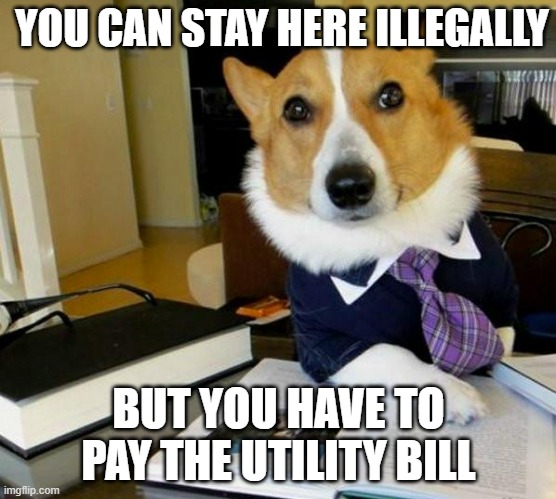
The tenant is responsible for paying any rent or other fees for the time in which they have the property.
The tenant is also responsible for keeping the property in good condition and following all of the rules and regulations outlined in the lease or rental agreement.
The process can be complicated and time-consuming if a landlord decides to evict a holdover tenant.
The landlord is not permitted to take matters into their own hands and forcibly remove the tenant, as this is considered illegal.
The landlord must file a complaint in court and seek a court order. To do this, the landlord must first provide the tenant with written notice of the eviction, as well as the reasons for the eviction.
The landlord must then wait a certain time before the eviction process can proceed. In summary, understanding the concept of a holdover tenant in Colorado is essential for landlords and tenants alike.
It is important to understand both the rights and responsibilities of a holdover tenant and landlord to protect both parties. When in doubt, landlords should consult a lawyer or other legal professional for guidance.
Proper laws landlords must adhere to when legally evicting a tenant
- Landlords must follow the right process when evicting a tenant.
- If not followed, the tenant can file a lawsuit with the county court or the district court.
- If the tenant wins:
- The County Court can award the tenant money (damages).
- A District Court can stop unlawful eviction while the case is pending (injunction).
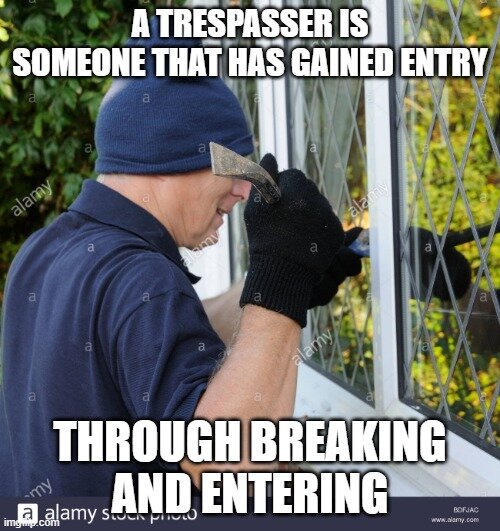
What Is The Difference Between Squatting and Trespassing?
If a person is living in a home without expressed consent from the owner of the property, then their status of “squatter” and “trespasser” hinges on how they obtained access to the property in the first place.
If the person used force to gain entry to the home, then they are considered a “trespasser”, and if they gained entry by other means then they are considered a “squatter”.
Trespassing is a crime, and calling your local sheriff’s office is probably your best bet when dealing with this particular situation. If the local law enforcement team deems the person is trespassing, then they will be removed or arrested immediately on the premises.
(The number one thing that you must not do is to leave the property unoccupied for an extended period, as this will attract squatters and trespassers alike)
You may also be interested in our other article detailing how to sell a rental property in Colorado.

What Rights Do Squatters Have?
Evicting Squatters Colorado…
If you have a squatter who is staying at your property without consent:
- 2023 Updated SB 15 Law – Senate Bill 19 passed, which will aid homeowners in evicting squatters. Property owners must still file a complaint with the county court, but SB 15 only gives squatters two days to appear in court to present their case instead of months. If the unlawful occupants fail to appear in court, then the sheriff can be given the power to remove them from the property within the next 24 hours.
- Colorado requires that you provide the squatter with at least a 3-day written notice, and once you have given them notice you may file an unlawful detainer to evict them through a standard court order.
- If the individual refuses to vacate the premises within 48 hours, you may file the unlawful detainer with your local court office. At this stage in the process, you may want to seek legal counsel to ensure that you are operating within the boundaries and guidelines of your state and local laws. You can usually download an unlawful detainer form from the court website, and then all you have to do is fill it out and file it at your local office.
- Ensure that you are serving your squatters/trespassers with the required paperwork such as proof of service, and any other relevant documents that pertain to their current living situation.
- Your local court will schedule a hearing that all parties must show up to, and you can present your case, and they will make a ruling based on the evidence provided to the courts.
- Once the squatter has been served and has been given the chance to tell their side of the story, a hearing will be conducted which usually doesn’t take longer than 1 hour.
- After the judge makes his ruling, you can then pass that along to the local sheriff, who will post a 5-day written notice to the squatter, and if they don’t leave within that time frame the local police will forcibly remove them and change the locks on the property.
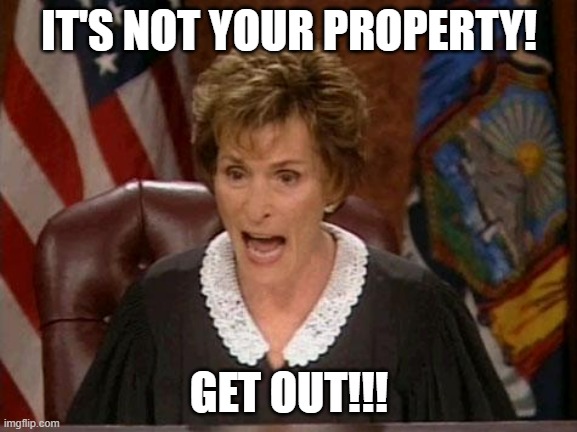
Some Things To Think About…
You may also run into scams when dealing with squatters in Colorado, so stay aware of your current surroundings and how people may be poised to take advantage of your property.
Some dishonest people may attempt to rent out your property to another tenant, and the person renting the property will have no idea who the actual owner is.
Other scams include squatters asking for large cash deposits to vacate the premises. They will also often lie and say that they are renting the property from someone else, when in fact they are simply living for free without paying any rent.
Oftentimes, if sellers are living out of state and have inherited the property that the squatters are living in then they aren’t available to file the forms and formally evict the trespassers.
I want these people out of my house but the process is so overwhelming!

Can You Sell Your House With Squatters Still Inside?
Yes! Our local home-buying company HBR Colorado has successfully evicted plenty of squatters all across the state of Colorado and we know the law inside and out, so we can confidently have them evicted fast!
If you are dealing with squatters and are wondering if you can sell the house for quick cash while they are still inside? The answer is yes.
Please contact us by filling out the form below to get a free quote on your house in under 24 hours and sell your house fast right out from under those pesky squatters and you will never have to hear from them or deal with them again!

What If I’m Living Out Of State? Can I Still Sell My House With Squatters In There?
Of course. Selling your Colorado house while living out of state is no problem because we can perform the close 100% virtually as outlined below.
Once we send the paperwork and contracts to you through email and they are signed and sent over to the title company, the closing agent will work with you to get your wiring instructions for the transaction.
Once you have signed the paperwork and sent the title company your wiring instructions, the next step is for us to wire in the funds so that the closing agent can close the deal and get your cash wired directly into your bank account through a domestic wire transfer.
This is known as a “mail-out closing”.
The only caveat is that the forms must be notarized so you will have to drive to a local notary in your area to sign the closing documents.
Are There Any Other Options Available To Quickly Get Rid Of Squatters?
Evicting squatters in Colorado can be an extremely challenging, time-consuming process that costs you a lot of money. HBR Colorado is here to help you throughout the entire process, and we can make you an all-cash offer on your property and help you evict these squatters who have no right to be there in the first place.
We are willing to offer alternative solutions to sellers who are willing to “partner with us” on the deal.
For example, if you want to come to some type of agreement that we will evict the squatters and spend our money to fix up the home and then resell it, our company will be entitled to a percentage of the proceeds from the sale.
This is only for our more trusted clients, so we would prefer to get to know you a little bit more first before we consider doing something like this with you.
But we are open to it and that option is available for select clients.
FAQ: Squatters Rights in Colorado
Q: What are squatter’s rights?
Q: How long does a squatter need to occupy a property to claim squatter’s rights in Colorado?
Q: Can a property owner evict a squatter?
Q: Are there any exceptions to squatter’s rights in Colorado?
Q: Do Squatters Need To Have Been Paying Taxes For 18 Years In Colorado?
A: In Colorado, squatters are not required to pay taxes for 18 years. However, if a squatter can demonstrate that they’ve maintained possession with a color of title—which means they’ve at least attempted to obtain a legal claim to the property—the required period of continuous occupation decreases from 18 years to just 7 years. This color of title often involves some form of payment, like taxes, which can support the squatters’ claim.
Selling Your House For Quick Cash With The Squatters Still Inside
Selling your Colorado house As-Is for Cash is the best way to clear the stress of dealing with squatters because then you will no longer have to worry about the property, as we will take over the deed and continue the eviction proceedings under our supervision.
If you want help selling your home fast for cash, and want a free online quote for your property today then please fill out the form below.
Fill out the quick form below to get an offer on your house TODAY!
Sell Your House Now - Please Submit Your Property Info Below
... to receive a fair all cash offer and to download our free guide.

| Legislative Updates | Implications for Property Owners | Considerations for Squatters |
|---|---|---|
| Clarifications on Adverse Possession Criteria Colorado lawmakers provide more clarity on the criteria for adverse possession. | Increased Protection of Property Rights Stricter criteria make it more challenging for adverse possession, enhancing property owner protection. | Heightened Criteria for Squatter’s Rights Squatters face increased requirements for legal recognition. |
| Stricter Requirements for Squatter’s Rights Establishment Stricter conditions for establishing squatter’s rights to address property owner concerns. | Expedited Eviction Processes Streamlined eviction processes benefit property owners, ensuring more efficient legal proceedings. | Risk of Expedited Eviction Squatters face higher risks of swift eviction actions. |
| Streamlined Eviction Processes Changes to expedite legal proceedings for more efficient eviction processes. | Enhanced Legal Recourse Enhanced legal recourse for property owners facing squatter occupation. | Legal Awareness and Compliance Squatters must be aware of the evolving legal landscape and ensure compliance with updated requirements. |



WOW,
I’ve heard of Vultures but here is a critter that scavenges the already scavenged carcass, that is, preys upon the already weakened victims. Oh wait never mind, they are actually lawyers providing a valuable service 🙂 WHAT A WORLD.
Thank You for the comment!
We’ve actually helped evict squatters and have provided legal information free of charge and will continue to do so.
can you revise this information now that sb 15 has passed. it shortened the time it takes to do all this to around 2-3 days. start to finish.
The article has been updated. Thank You For bringing this to our attention.
Squatters exist in the short term or the long term because many property owners neglect or abandon their real property. If you’re out of state or out of the country hire a person to check on the property. It’s easy to determine if somebody is residing there. Then exercise the procedures outlined in this excellent resource. You’re not obligated to give shelter to anyone.
Yes, you’re right. Most of the people who call us that have squatters occupying their property were out of state on vacation and when they came back they found the trespassers in their home. Thanks for the comment!
Squatters’ rights can be a contentious issue. While they aim to protect vulnerable individuals from immediate displacement, they can create challenges for property owners trying to reclaim their rights. Striking a balance between compassion for those in desperate situations and the need for clear property ownership laws is crucial. It’s essential that laws around squatters’ rights and eviction processes are transparent and fair, ensuring both parties are treated justly.
You hit the nail on the head! It’s so critical to strike a balance between compassion for those who are homeless and need a place to live and the property owner’s rights. While it’s important to show sympathy to people without housing, that doesn’t mean that it is a good excuse to infringe upon the rights of the property owner.
Many people in this world that do many different things. I think that squatting can just happen where the person can get entangled with living situations. Everyone needs a place of dwelling and seems as if these are the unlucky ones. So notices and pry will get them moving again.
Yes, some people are what I would call “unintentional squatters” and they should be clearly distinguished from the “nefarious squatters” with bad intentions who are intentionally trying to steal real estate from landlords. Great point! Thanks for commenting.
Knowing squatter’s rights and the eviction process is vital for Colorado property owners, as mishandling these situations can lead to costly delays and legal complications.
Yes, a lot of people think that you can shut off their utilities or use other forceful methods for squatter eviction but the fact is all of those tactics are 100% illegal!
Squatter’s rights in Colorado are a long and complicated process. To claim a property, a squatter must live there openly and continuously for 18 years without the owner’s permission. It’s a risky and time-consuming process, and it’s often easier to just buy a property legally.
Yes, you’re right! The problem is that squatters often have bad credit and are unable to qualify for home loans, which is why they are squatting illegally in the first place.
I was searching for this information to help a friend and came across this guide. I found it to be comprehensive and beneficial for my needs. I was unaware of many of the facts in the article; it’s worth reading for anyone looking for squatter’s rights knowledge in Colorado. Thank you!
Thanks for the comment! I’m glad you found the guide useful, and I hope your friend gets those squatters out of their property!
This article provides an insightful overview of squatter’s rights and how property owners in Colorado can address such situations legally. The detailed explanation of the eviction process, including timelines and necessary legal steps, is essential for homeowners dealing with squatters. It highlights the importance of knowing your rights and acting promptly while staying within legal bounds to avoid complications. The content also emphasizes preventive measures property owners should take to protect against squatting, which can be highly beneficial for safeguarding property.
Thanks for the comment! Yes, squatters are a nuisance and a headache but if you take the time to follow the steps in this guide then you can regain ownership of your property.
I commend the thoroughness of this guide on squatter’s rights and eviction laws in Colorado. The detailed explanations of the legal framework provide clarity for those navigating these challenging situations, making it an essential read for both landlords and tenants
Thank You for the kind words! I did a lot of research to put this guide together and it is combined with years of personal experiences evicting squatters in Colorado. I appreciate the feedback!
More precisely, it would be: “This article is a great overview of squatter situations to be taken care of in Colorado. With clear steps and a strong emphasis on the process of legal procedures, it is of great value to any owner of property. I highly recommend reading for anyone who wants to tackle these challenges in an efficient and responsible manner!
That’s a great analysis of this article on squatter’s rights in Colorado. Thank you for the feedback, I appreciate it!
This is definitely a lot just to get someone off of YOUR property. Although I don’t feel that living on vacant land is necessarily wrong if you are asked to leave do so voluntarily. Don’t make someone go through all of this, losing more money just for something you will have to do anyway.
Good insights here! Yes, we prefer to get squatters to vacate the property by offering them “cash for keys” and other similar incentives instead of going through the complex legal eviction process. However, some squatters can be extremely stubborn and the legal eviction process becomes a necessary evil.
I really commend of this article of the overview of the helpful tips of getting rid of squatters.
I’m glad you enjoyed the article, thanks for commenting!
This article is very insightful on the everything about squatters in Colorado. Its a deep complicated subject that needs legal implications and protecting from both the squatter and property owner . it seems that it is a very gray area subject matter where every occurrence needs looked at objectively for the protection of individuals.
I appreciate the comment Rachel, thank you!
The article “Squatter Rights in Colorado” provides a thorough and informative overview of the legal complexities surrounding squatters in the state. It does a great job of explaining both the rights of property owners and the protections in place for squatters, offering a balanced perspective on a sensitive issue. The step-by-step guidance on how to navigate the eviction process is particularly helpful for property owners. Additionally, the article highlights the importance of understanding local laws and emphasizes the need for legal procedures, helping readers make informed decisions.
Thanks, Jennifer. Yes, I put a lot of effort into the step-by-step guide so I’m glad you found that useful.
I am very grateful for this article, as this is something my family is currently struggling with. It is a long process but this helps me understand what comes next a bit more.
I’m sorry that your family is currently dealing with squatters in their home. It truly is a real-life nightmare. I’m glad, however, that my article was able to help guide you through the process. Thanks for reading and commenting and good luck with your situation!
Squatting can occur when property owners neglect or abandon their real estate, whether temporarily or for longer periods. If you’re unable to oversee your property in person, consider hiring someone to regularly check on it. It’s typically easy to spot if someone is living there. In such cases, follow the legal steps outlined in reliable resources to address the issue. Remember, you are not required to provide shelter to anyone without your consent.
Yes, hiring someone local to go by and check on your property is a great method for keeping squatters out of your home. Thanks for reading and leaving your thoughts!
I love this informative post, it’s explanation toward property owners was also really great! Just a great read overall!
Thanks for reading and commenting!
I think it is absolutely ridiculous for a person to have rights over a property he or she did not work for. But it is good for land owners to be aware of the law to prevent them from taking violent actions against someone on their property.
Yes, a lot of landlords think that they can perform self-help evictions by changing the locks and turning off utilities on squatters, but all of those tactics are illegal!
The article provides an in-depth look at squatter’s rights, giving Colorado property owners essential insights on how to legally address squatting issues. It outlines the eviction process clearly, including the required steps and timeline, making it a helpful resource for homeowners. The article stresses the need to understand one’s rights and act quickly while staying compliant with the law to prevent complications. It also emphasizes proactive measures that property owners can take to avoid squatting, offering valuable strategies to protect their properties.
Thanks for the comment, Robert!
I agree with Brian, this is great way to help. Overall,the massive problem in society is no one will address why squatters are becoming more rampant. Everyone deserves housing, supplying this housing curbs squatters from becoming thing to begin with.
Yes, it’s true. We are in the midst of a housing shortage/crisis so it’s a very delicate balance between providing affordable housing and protecting the rights of property owners.
I feel like this article has it right, squatters and their rights are (under Colorado Law) scrutinized by many. However, if you look at the basis of the argument, paragraphs 2, 4, and 7 completely bear resemblance to most who would assume otherwise. I agree with this, and seemingly agree to the discussion as well.
Thanks for pointing that out, great comment!
I was searching for this information to help a friend who was having issues with a squatter on her rental property. I found it to be comprehensive and beneficial for my needs. I was unaware of many of the facts in the article; it’s worth reading for anyone looking for squatter’s rights knowledge in Colorado. The step by step guide as well as visuals were beneficial. Thanks!
Thanks for commenting, and good luck to your friend!
This is important information to know whether you’re a squatter or property owner. Very helpful information.
Thanks for reading and commenting!
I think its terrible that we have to invoke such rights in our own homes
Yes, it’s a shame that we have to use these legal strategies to get our properties back while the squatter who breaks the law is protected.
I think everyone deserves right to housing squatters should be protected even though there is shortage of housing
I disagree. If you don’t work then you don’t DESERVE a house simply for existing.
It’s good that the article teaches us about the rights of squatters, but personally, a squatter should have no right to another person’s property. in any case the articles are well done it also gives us solutions if this ever happens to us.
Yes, the entire idea behind the squatting phenomenon should be a moot point in the first place.
“I found this guide on squatter’s rights and eviction laws in Colorado to be incredibly informative and well-organized. The explanations are clear, making it easy to understand a complex topic. It’s evident that a lot of effort went into creating this resource. The video included is also a nice touch, providing an engaging way to learn more about the subject. Definitely a helpful resource for homeowners or anyone dealing with similar situations!
Thanks for commenting!